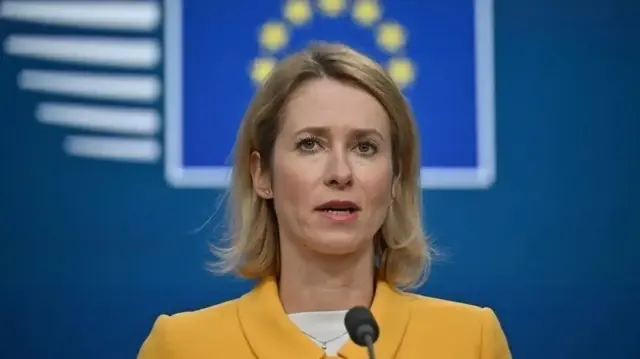European Union foreign policy chief Kaja Kallas has commended the warming relations between Greece and Türkiye, characterizing the diplomatic thaw as a stabilizing development for the Eastern Mediterranean region. Her statements came during meetings with Greek officials in Athens where she also addressed ongoing European security concerns.
Regional Stability and Bilateral Relations
Speaking before her discussion with Greek Prime Minister Kyriakos Mitsotakis, Kallas explicitly linked improved Greek-Türkiye ties to broader regional security. “The improvement of Greece-Türkiye relations is good news for the stability of the Eastern Mediterranean,” she stated. This acknowledgment from the EU’s top diplomat highlights the strategic importance the bloc places on reduced tensions between the two NATO allies.
Greece’s Security Contributions
Kallas further recognized Greece’s role within European defense architecture, noting its substantial military spending and participation in international missions. She specifically mentioned Greek troop deployments to Bosnia and Herzegovina and naval contributions to the EU’s Aspides operation in the Red Sea, framing them as valuable contributions to collective European security.
Continued Pressure on Russia
On the subject of Ukraine, the EU foreign policy chief maintained a firm stance, asserting that Russia shows no genuine interest in peace negotiations. She defended the recently adopted sanctions package as effectively targeting Russia’s energy, financial, and industrial sectors. “The sanctions are really working. These are addressing energy, finance, and the military industrial base to deprive Russia of millions of euros to fund its war,” Kallas affirmed, emphasizing the EU’s commitment to sustained pressure.
SEO Tags: European Union foreign policy chief Kaja Kallas has commended the warming relations between Greece and Türkiye, characterizing the diplomatic thaw as a stabilizing development for the Eastern Mediterranean region. Her statements came during meetings with Greek officials in Athens where she also addressed ongoing European security concerns.Regional Stability and Bilateral Relations
Speaking before her discussion with Greek Prime Minister Kyriakos Mitsotakis, Kallas explicitly linked improved Greek-Türkiye ties to broader regional security. “The improvement of Greece-Türkiye relations is good news for the stability of the Eastern Mediterranean,” she stated. This acknowledgment from the EU’s top diplomat highlights the strategic importance the bloc places on reduced tensions between the two NATO allies.
Greece’s Security Contributions
Kallas further recognized Greece’s role within European defense architecture, noting its substantial military spending and participation in international missions. She specifically mentioned Greek troop deployments to Bosnia and Herzegovina and naval contributions to the EU’s Aspides operation in the Red Sea, framing them as valuable contributions to collective European security.
Continued Pressure on Russia
On the subject of Ukraine, the EU foreign policy chief maintained a firm stance, asserting that Russia shows no genuine interest in peace negotiations. She defended the recently adopted sanctions package as effectively targeting Russia’s energy, financial, and industrial sectors. “The sanctions are really working. These are addressing energy, finance, and the military industrial base to deprive Russia of millions of euros to fund its war,” Kallas affirmed, emphasizing the EU’s commitment to sustained pressure.
